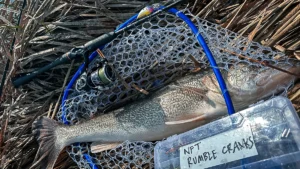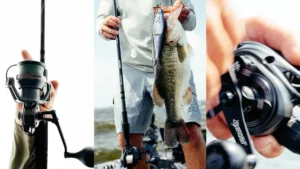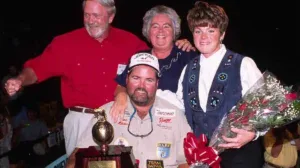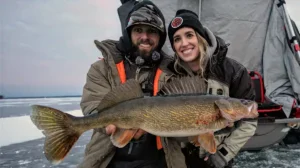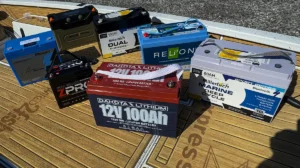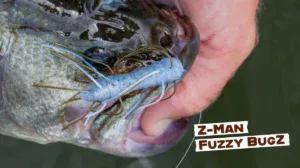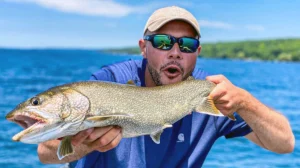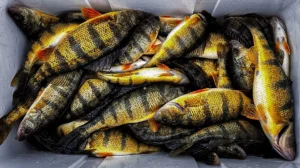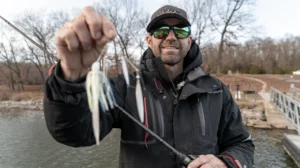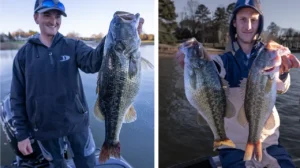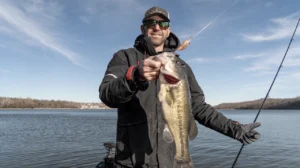Few baits have the triggering ability of a jerkbait, and thanks to the explosion of forward-facing sonar, anglers are now using them year-round with excellent results. So what’s the best jerkbait fishing rod setup? Pro bass angler Cody Hahner shares his opinion on the best rod setups, which include spinning and casting gear. He discusses when he uses each and key details about the rod, reel, and line in both cases.
FEATURED PRODUCT (retail links)
SPINNING SETUP
- ROD – St. Croix Victory, 7’1 Medium
- REEL – Shimano Stradic 3000 Spinning Reel
- LINE (MAIN) – Seaguar Smackdown Braid, 8- to 10-pound
- LINE (LEADER) Seaguar Gold Label Fluorocarbon, 8- to 10-pound
CASTING SETUP
- ROD – St. Croix Victory Casting Rod, 7’2″ Medium Heavy Moderate Fast
- REEL – Shimano Chronarch, 8:1.1
- LINE – Seaguar InvisX Fluorocarbon, 8- to 15-pound
Hahner uses a casting setup, especially for largemouth, 95% of the time. Still, spinning plays a vital role in clear water with spooky fish. Great Lakes smallmouth bass is a prime example of when longer casts and an ultra-smooth drag are paramount. A longer rod with a softer rod taper cast further while providing measured give to reduce tearing out hooks with aggressive smallmouth. He opts for a larger 3000 or 4000-size spinning reel spooled with a light braid, never exceeding a 10-pound braid paired to an 8- to 10-pound fluorocarbon leader. The bigger spool size coupled with the small line diameter casts further and gets the bait deeper when stealth is necessary.
Casting gear gets the nod in dingier water or when largemouth is the focus. In this situation, Hahner prefers a longer than typical jerkbait rod, which is actually a cranking stick in the 7-foot range. Crankbait rods usually have a softer tip than traditional jerkbait rods, forcing you to slow down and keep fish hooked better than faster and stiffer varieties. Straight fluorocarbon in 8- to 15-pound test gets the nod depending on lure size and habitat, with 10-pound being his all-around go-to.
The bottom line is jerkbaits, and the situations we fish them are highly varied. As such, no one setup is “best” in all cases. A mix of spinning and casting gear helps you catch more bass, depending on the target species and environment. Also, read our article on Spinning vs Casting.


